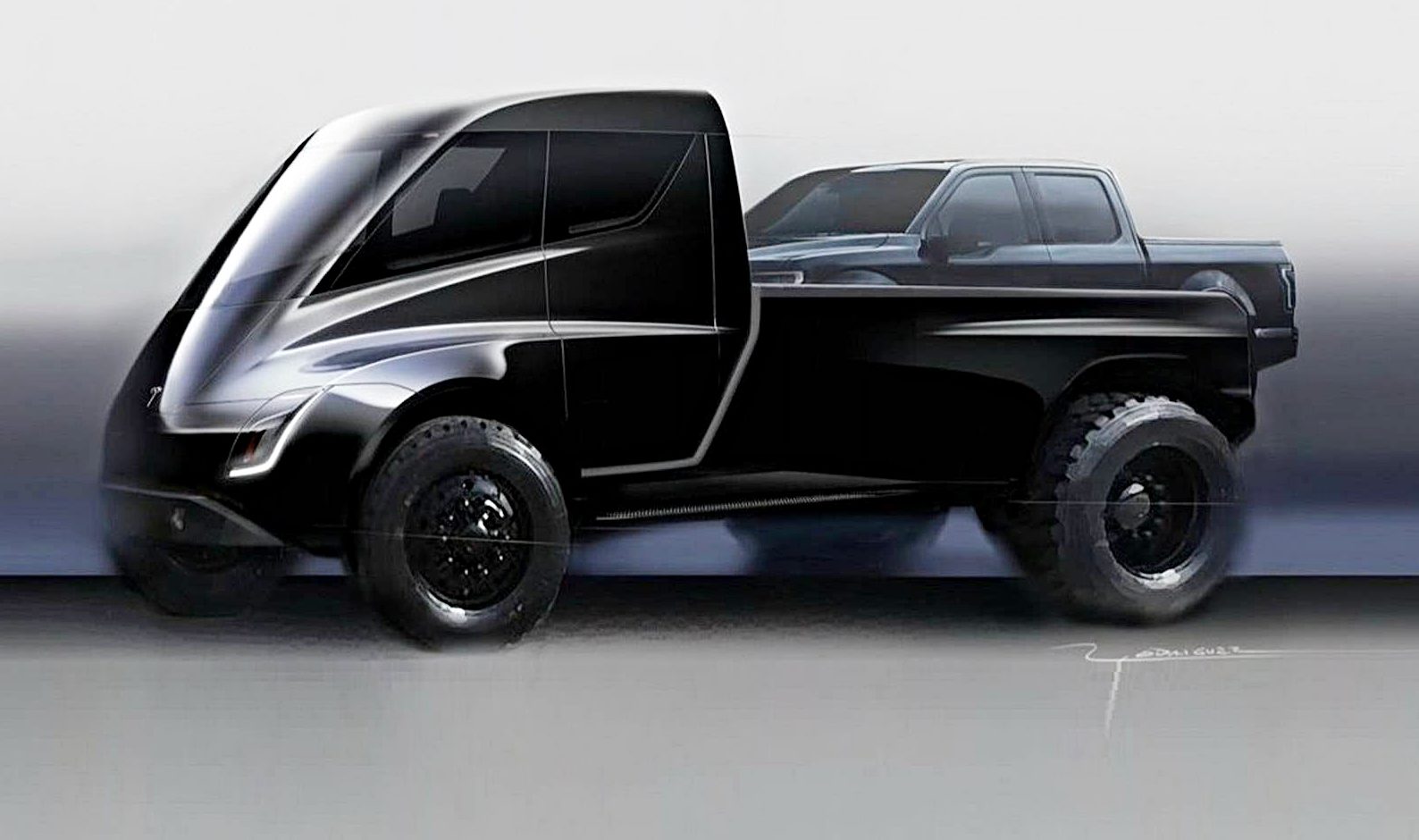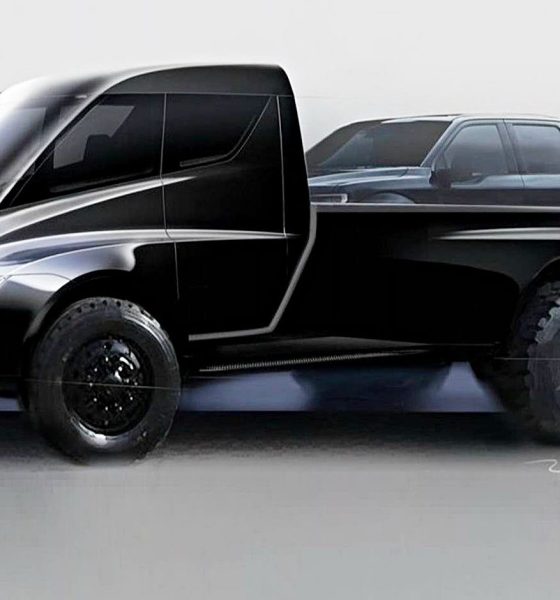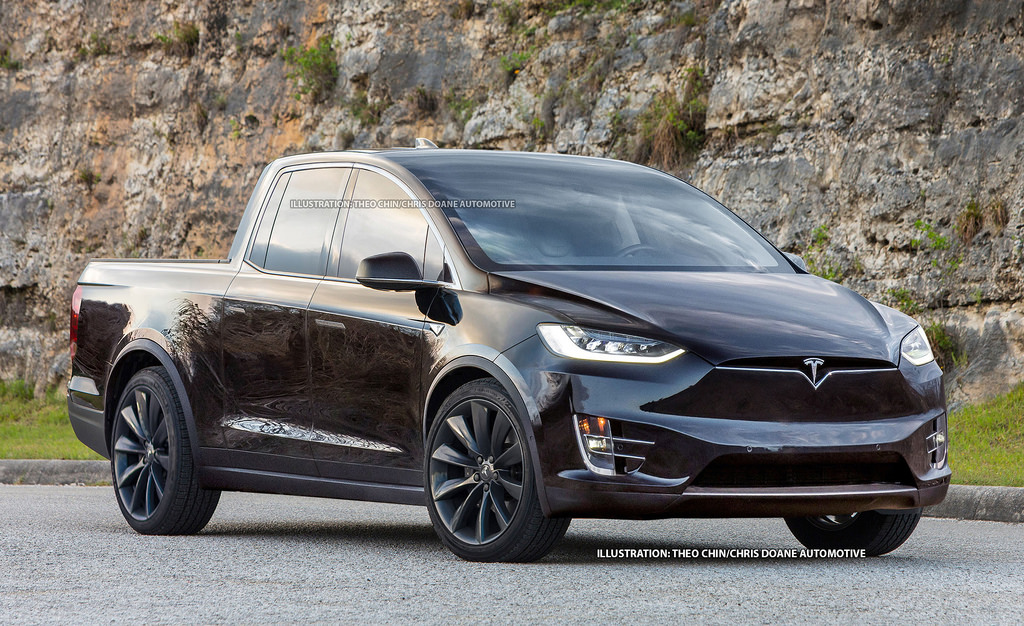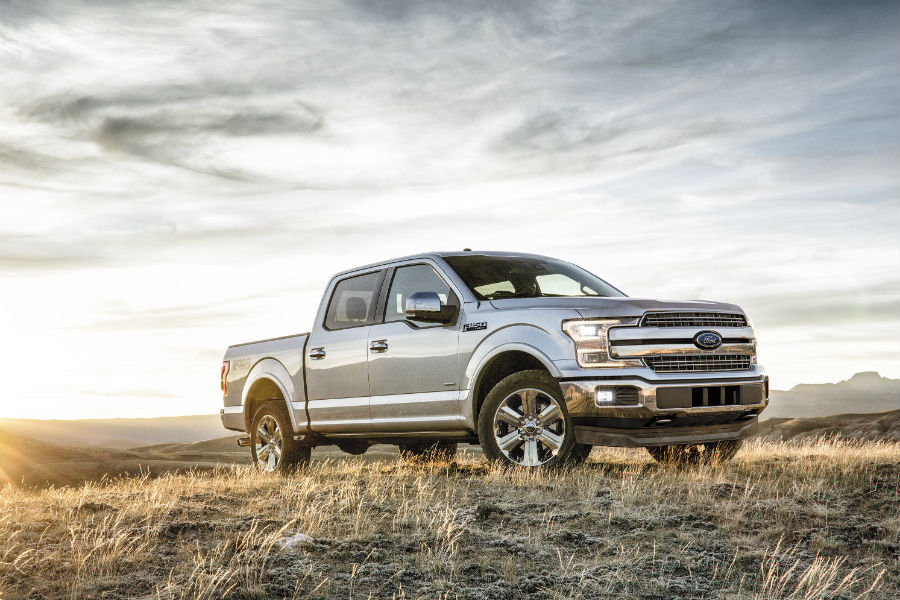

News
Elon Musk’s Tesla pickup truck will likely have few competitors from legacy auto
Elon Musk admits that while Tesla probably has the most exciting product roadmap in the industry today, he has a soft spot for the company’s upcoming pickup truck. In a recent appearance at the Recode Decode podcast hosted by veteran tech journalist Kara Swisher, Musk stated that the Tesla Truck would be “super futuristic,” to the point where it would not look out of place in the Blade Runner franchise.
Musk candidly added that if the first pickup, with its cyberpunk tech and features, proves too radical for the market, then Tesla would release a more conventional truck. Ultimately, it remains to be seen if the company would breach the pickup market through Elon Musk’s Blade Runner cyberpunk truck or a more conventional pickup, but one thing is sure. Tesla would soon be competing in America’s most lucrative auto segment.
It could be argued that pickup trucks are the quintessential American vehicles. In 2017 alone, pickup truck sales across the US accounted for 16.4% of the country’s total car sales. Within this number were nearly 900,000 Ford F-Series pickups and about 950,000 GM-branded trucks. Speaking to Trucks.com last January, Michael Ramsey, an automotive analyst at Gartner Inc., noted that in several areas in the US, a truck is a preferable vehicle for consumers.

“In many areas of the country, the truck is just the preferred lifestyle look. They handle much better than before, and with the aid of technology, are even easier to navigate in tight spaces. The U.S. is ideally suited to bigger vehicles because of big parking spaces and roads,” the auto analyst said.
While the disruption of the auto industry with electric-powered vehicles could be felt in the passenger car market thanks to vehicles like the Tesla Model 3, the EV movement is yet to breach the pickup truck segment. EV startups like Bollinger Motors and Rivian are working on all-electric pickup trucks, but both companies are still building facilities capable of manufacturing vehicles on a mass scale. Rivian, for one, is tooling its 2.6 million sq ft factory in Normal, IL. Legacy automakers, which actually have the necessary infrastructure to mass produce all-electric trucks, have mostly taken a rather conservative stance.
Ford has noted that it is developing a hybrid version of its best-selling F-150 pickup truck. In a post on its official website, the company stated that the F-150 hybrid would be a vehicle with no-compromises, “from low-end torque for extra pulling power to serving as a mobile generator on the job site.” Ford, though, has not announced an official release date for the vehicle, though there is speculation that the legacy automaker would launch the hybrid truck around 2020.

GM, on the other hand, recently took an even more conservative stance. In a statement to the Detroit Free Press, vice president of global strategy Mike Abelson declared that GM would lead the EV industry in the “next decade or so.” Despite this, Abelson noted that its core business — comprised of large, gasoline and diesel-powered pickup trucks — would remain intact for the next couple of decades.
“The core business is going to be the core business for a couple of decades to come. There will not be any AV/EV pickups,” Abelson said.
With legacy automakers seemingly taking their time once more, Elon Musk’s Blade Runner truck might end up being one of the first movers in the electric pickup market. And if there is anything that could be learned in the domination of the Model S and 3 in their respective segments, ignoring Tesla and the potential of its vehicles could be a pretty big mistake.
In a brief brainstorming session on Twitter earlier this year, Elon Musk accepted suggestions for features that would be useful for the upcoming Tesla pickup truck. Among these include four-wheel steering, the capability to parallel park itself, seating for six people, a 240-volt connection for power tools, and a maximum towing capacity of 300,000 pounds. Tesla is yet to provide a teaser for the release date of its pickup truck, though speculations are high that the vehicle would be announced after the Model Y, which is expected to be unveiled in 2019.

News
Tesla wins another award critics will absolutely despise
Tesla earned an overall score of 49 percent, up 6 percentage points from the previous year, widening its lead over second-place Ford (45 percent, up 2 points) to a commanding 4-percentage-point gap. The company also excelled in the Fossil Free & Environment category with a 50 percent score, reflecting strong progress in reducing emissions and decarbonizing operations.

Tesla just won another award that critics will absolutely despise, as it has been recognized once again as the company with the most sustainable supply chain.
Tesla has once again proven its critics wrong, securing the number one spot on the 2026 Lead the Charge Auto Supply Chain Leaderboard for the second consecutive year, Lead the Charge rankings show.
NEWS: Tesla ranked 1st on supply chain sustainability in the 2026 Lead the Charge auto/EV supply chain scorecard.
“@Tesla remains the top performing automaker of the Leaderboard for the second year running, and increased its overall score by 6 percentage points, while Ford only… pic.twitter.com/nAgGOIrGFS
— Sawyer Merritt (@SawyerMerritt) March 4, 2026
This independent ranking, produced by a coalition of environmental, human rights, and investor groups including the Sierra Club, Transport & Environment, and others, evaluates 18 major automakers on their efforts to build equitable, sustainable, and fossil-free supply chains for electric vehicles.
Tesla earned an overall score of 49 percent, up 6 percentage points from the previous year, widening its lead over second-place Ford (45 percent, up 2 points) to a commanding 4-percentage-point gap. The company also excelled in the Fossil Free & Environment category with a 50 percent score, reflecting strong progress in reducing emissions and decarbonizing operations.
Perhaps the most impressive achievement came in the batteries subsection, where Tesla posted a massive +20-point jump to reach 51 percent, becoming the first automaker ever to surpass 50 percent in this critical area.
Tesla achieved this milestone through transparency, fully disclosing Scope 3 emissions breakdowns for battery cell production and key materials like lithium, nickel, cobalt, and graphite.
The company also requires suppliers to conduct due diligence aligned with OECD guidelines on responsible sourcing, which it has mentioned in past Impact Reports.
While Tesla leads comfortably in climate and environmental performance, it scores 48 percent in human rights and responsible sourcing, slightly behind Ford’s 49 percent.
The company made notable gains in workers’ rights remedies, but has room to improve on issues like Indigenous Peoples’ rights.
Overall, the leaderboard highlights that a core group of leaders, Tesla, Ford, Volvo, Mercedes, and Volkswagen, are advancing twice as fast as their peers, proving that cleaner, more ethical EV supply chains are not just possible but already underway.
For Tesla detractors who claim EVs aren’t truly green or that the company cuts corners, this recognition from sustainability-focused NGOs delivers a powerful rebuttal.
Tesla’s vertical integration, direct supplier contracts, low-carbon material agreements (like its North American aluminum deal with emissions under 2kg CO₂e per kg), and raw materials reporting continue to set the industry standard.
As the world races toward electrification, Tesla isn’t just building cars; it’s building a more responsible future.
News
Tesla Full Self-Driving likely to expand to yet another Asian country
“We are aiming for implementation in 2026. [We are] doing everything in our power [to achieve this],” Richi Hashimoto, president of Tesla’s Japanese subsidiary, said.

Tesla Full Self-Driving is likely to expand to yet another Asian country, as one country seems primed for the suite to head to it for the first time.
The launch of Full Self-Driving in yet another country this year would be a major breakthrough for Tesla as it continues to expand the driver-assistance program across the world. Bureaucratic red tape has held up a lot of its efforts, but things are looking up in some regions.
Tesla is poised to transform Japan’s roads with Full Self-Driving (FSD) technology by 2026.
Richi Hashimoto, president of Tesla’s Japanese subsidiary, announced the ambitious timeline, building on successful employee test drives that began in 2025 and earned positive media reviews. Test drives, initially limited to the Model 3 since August 2025, expanded to the Model Y on March 5.
Once regulators approve, Over-the-Air (OTA) software updates could activate FSD across roughly 40,000 Teslas already on Japanese roads. Japan’s orderly traffic and strict safety culture make it an ideal testing ground for autonomous driving.
Hashimoto said:
“We are aiming for implementation in 2026. [We are] doing everything in our power [to achieve this].”
The push aligns with Hashimoto’s leadership, which has been credited for Tesla’s sales turnaround.
In 2025, Tesla delivered a record 10,600 vehicles in Japan — a nearly 90% jump from the prior year and the first time exceeding 10,000 units annually.
BREAKING 🇯🇵 FSD IS LIKELY LAUNCHING IN JAPAN IN 2026 🚨
Richi Hashimoto, President of Tesla’s Japanese subsidiary, stated: “We are aiming for implementation in 2026” and added that they are “doing everything in our power” to achieve this 🔥
Test drives in Japan began in August… pic.twitter.com/jkkrJLszXN
— Ming (@tslaming) March 5, 2026
The strategy shifted from online-only sales to adding 29 physical showrooms in high-traffic malls, plus staff training and attractive financing offers launched in January 2026. Tesla also plans to expand its Supercharger network to over 1,000 points by 2027, boosting accessibility.
This Japanese momentum reflects Tesla’s broader international expansion. In Europe, Giga Berlin produced more than 200,000 vehicles in 2025 despite a temporary halt, supplying over 30 markets with plans for sequential production growth in 2026 and battery cell manufacturing by 2027.
While regional EV sales faced headwinds, the factory remains a cornerstone for Model Y deliveries across the continent.
In Asia, Giga Shanghai continues to be recognized as Tesla’s powerhouse. China, the company’s largest market, saw January 2026 deliveries from the plant rise 9 percent year-over-year to 69,129 units, with affordable new models expected later this year.
FSD advancements, already progressing in the U.S. and South Korea, are slated for Europe and further Asian rollout, complementing plans to expand Cybercab and Optimus to new markets as well.
With OTA-enabled autonomy on the horizon and retail strategies paying dividends, Tesla is strengthening its footprint from Tokyo showrooms to Berlin assembly lines and Shanghai exports. As Hashimoto continues to push Tesla forward in Japan, the company’s global vision for sustainable, self-driving mobility gains traction across Europe and Asia.
News
Tesla ships out update that brings massive change to two big features
“This change only updates the name of certain features and text in your vehicle,” the company wrote in Release Notes for the update, “and does not change the way your features behave.”

Tesla has shipped out an update for its vehicles that was caused specifically by a California lawsuit that threatened the company’s ability to sell cars because of how it named its driver assistance suite.
Tesla shipped out Software Update 2026.2.9 starting last week; we received it already, and it only brings a few minor changes, mostly related to how things are referenced.
“This change only updates the name of certain features and text in your vehicle,” the company wrote in Release Notes for the update, “and does not change the way your features behave.”
The following changes came to Tesla vehicles in the update:
- Navigate on Autopilot has now been renamed to Navigate on Autosteer
- FSD Computer has been renamed to AI Computer
Tesla faced a 30-day sales suspension in California after the state’s Department of Motor Vehicles stated the company had to come into compliance regarding the marketing of its automated driving features.
The agency confirmed on February 18 that it had taken a “corrective action” to resolve the issue. That corrective action was renaming certain parts of its ADAS.
Tesla discontinued its standalone Autopilot offering in January and ramped up the marketing of Full Self-Driving Supervised. Tesla had said on X that the issue with naming “was a ‘consumer protection’ order about the use of the term ‘Autopilot’ in a case where not one single customer came forward to say there’s a problem.”
This was a “consumer protection” order about the use of the term “Autopilot” in a case where not one single customer came forward to say there’s a problem.
Sales in California will continue uninterrupted.
— Tesla North America (@tesla_na) December 17, 2025
It is now compliant with the wishes of the California DMV, and we’re all dealing with it now.
This was the first primary dispute over the terminology of Full Self-Driving, but it has undergone some scrutiny at the federal level, as some government officials have claimed the suite has “deceptive” names. Previous Transportation Secretary Pete Buttigieg was one of those federal-level employees who had an issue with the names “Autopilot” and “Full Self-Driving.”
Tesla sued the California DMV over the ruling last week.








